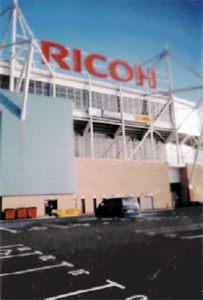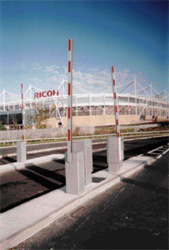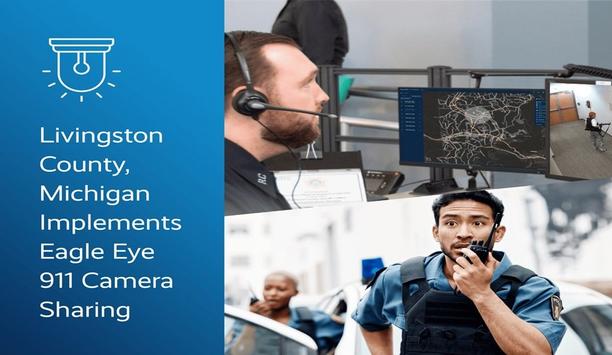 We left Jim Chalmers, one of the leading lights of UK stadium security, safety and stewarding, speaking last issue about the passion excited by football. He continues ...
We left Jim Chalmers, one of the leading lights of UK stadium security, safety and stewarding, speaking last issue about the passion excited by football. He continues ...
What of sport-watchers’ passions? If a club is winning, fans are happy. But not all clubs can win at once. If you or I are unhappy with service at a supermarket or bank, or an opera, we probably simply do not go back. We do not stand outside the place, chanting. But such demos happen in football, where fans simply cannot change the club they follow. Manchester United - despite all its recent success - is perhaps the most famous example, of fans protesting against new owners, the Glazer family, and recent some relatively poor results this season.
‘Sack the board’
Briefly, Jim is deputy safety officer at Kidderminster FC. A former senior West Midlands Police officer, he is president of the Football Safety Officers Association (FSOA).
He recalls how last season, as ‘Kiddie’ were going towards relegation to the Conference, “we had one or two demonstrations, saying ‘sack the board’; that’s part of your risk assessment. It shouldn’t come as a surprise to anybody, if a club isn’t doing well, the fans are going to react; that is part of your strategy, in dealing with crowd management. So no, if a club isn’t doing well, you can expect back-lash from the fans, and that is either against the management or more generally against the chairman or the board. Your planning strategy takes account of that ... as long as that demonstration is peaceful, or not aggressive or violent, people have a right to say what they think, of the chairman, board, or team; as long as this is within bounds, and in a controlled environment; in other words, what you aren’t going to tolerate is people running on to the pitch and sitting in the centre circle.”
It’s something to be managed, like anything else, Jim stresses; same as if your safety systems failed because of a power failure. He pats a blue folder titled ‘Kidderminster’s contingency plans’. For instance, if a sub-station nearby fails, and the ground is plunged into darkness; the game has to be abandoned. There have to be procedures for abandonment, for a crowd to leave safely. But Jim returns to the human element: stewards are wearing high-visibility jackets, in the same part of the ground each game, perhaps; they are talking to fans.
Different from police
Is there something to be said about stadia security and safety management as a career to get into, with an eye to the 2012 Olympics? At the risk of generational stereotypes, while there is an older generation of ex-police, ex-fire stadium safety officers, there are younger men, and indeed women (vice-chairman of the FSOA is Sue Watson, of Southampton FC). While not discounting the skills of an ex-police or military person, Jim adds that it’s a question of how quickly they can translate their expertise into safety and security management: “Because it is totally different from being a police officer in a disciplined body, or a military man, when you are coming into safety management and you are dealing with part-time stewards; OK, they are trained, but they will never be police officers, soldiers, fire fighters, they are stewards, who do a damned good job for us.”
Jim’s superior, Pete Smith, you could say is an example of the new generation; he began as a steward, at Wolverhampton Wanderers, and came through the ranks; and got first the safety officer’s job at Kidderminster, then the Coventry job. If you are wondering what happens the few games each season when Kidderminster and Coventry are each at home, Jim will do Kidderminster, and Pete Coventry.
Complacency the enemy
Jim quotes from the Taylor report, that complacency is the main enemy of safety: “The day that Pete and I think we have it right, we have probably got it wrong. This may sound trite: I was part of the Hillsborough era; and that could have happened at Villa Park in my time there as police commander; it could have happened to me, what happened at Hillsborough. Hillsborough was a disaster waiting to happen somewhere, for all the factors outlined in the [Taylor] report.”
Each game is a different challenge and you do not become complacent, Jim adds. Some football supporters are more passionate than others; some want to come with drums or trumpets; and not everyone wants to sit next to a fan banging a big bass drum.
 Trumpets and drums
Trumpets and drums
As someone who was irritated once last season by a visiting Accrington Stanley trumpet player (a fan, not a footballer), what are the safety and security issues? Safety officers in their reports will mention if there are such travelling musicians. So the home safety officer is in the know in advance: “What we ask is that they [the drummer] should ask our permission first; they should not just turn up. Normally the people who do that [play an instrument on the terraces] will have been in contact with us.” The drummer or cornet-player will not be put in a seated area, but the visiting fans’ terrace, so that if you have a trumpet in your ear, it’s your choice. If there are complaints, the stewards would stop the music. This scenario in miniature shows the various factors besides safety management. If a fan were to arrive at a turnstile with a drum, or a big flag, unannounced, the home club will make what Jim describes as ‘a judgement call’. For safety and security - the possibility that fans will regard the drum or flag as a nuisance - are not the only factors. A club hardly wants to turn away a paying customer. There was not time to cover the security topics of the moment in stadia - how to manage sale of alcohol; the training of stewards - you recall that in 2005 sports stewards were (largely) let off SIA licences, to the anger of the BSIA; home and away fan segregation; even stadium security after 9-11. To be fair, all those subjects are covered in Safety and Security at Sports Grounds (see below). In the book, Jim does admit that one unnamed private security company takes stewards through the training in half the time most clubs take for in-house staff. To be fair, he could have written that it’s a problem in SIA licence training too.
Death of a steward
While Jim had a point, that the media are only interested in bad news, he does say later that he will always remember Bradford for the fire; and Hillsborough for the disaster. Truly, it is only human nature to remember the bad and not the hundreds of good, uneventful events. In interview, Jim speaks of how in his book he writes of the ‘accidental death of a steward’. Ron Reeves, a security supervisor at Coventry’s previous stadium, was killed in 1998 when the Arsenal team coach reversed into him, at a car park gate. Jim, who at the time worked for the Football Licensing Authority and knew Ron Reeves, writes in his book of the tragedy. Coventry did a good job of safety and security; the visiting team coach had parked without incident for years; yet the man died.
Jim’s point: “That’s why you cannot be complacent. That’s why our car park stewards are briefed; simple things like, don’t stand in front of a car, on the car park. You stand at the side; little things like that, because that comes down to health and safety. We have that responsibility, not only to the crowd, but our employees; their safety. I will never forget Ron Reeves; such a nice man; and no-one will ever know how Ron got between the coach and the gate.”
The buzz
Finally, Jim shows the control room. He says of a match day: “The buzz I get out of doing this - look at the ground now; it’s just a structure, but on that day the structure comes alive.” And people, from the board of directors to St John Ambulance to the programme sellers and the men and women working the turnstiles, make it work. And then the couple of thousand Kidderminster crowd leave and the ground becomes an empty shell again. Jim Chalmers has to meet with Pete Smith and the local FLA inspector, Martin Girvan, about the next home game (in the FA Trophy - Kiddie thrash Scarborough 4-0). My leaving thought is that Kidderminster, Coventry City and Jim Chalmers’ grandchildren are in good hands.

















